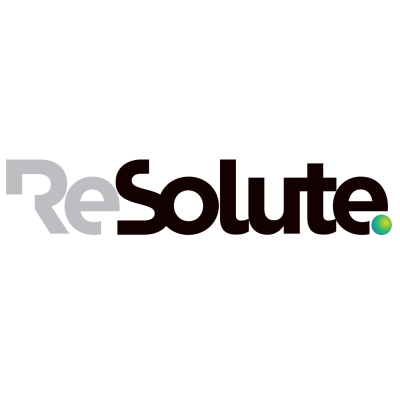
ReSolute
HIGH PERFORMING AND SAFE SOLVENT DERIVED FROM CELLULOSIC FEEDSTOCKS

HIGH PERFORMING AND SAFE SOLVENT DERIVED FROM CELLULOSIC FEEDSTOCKS
Solvents play an essential role in innumerable chemical production processes. They find applications in paints, electronics, pharmaceuticals and agrochemical production. The total market for solvents in Europe is approximately 4 million tonnes. Unfortunately, a considerable number of the solvents currently in use are known to pose a hazard to both human health and the environment, meaning their use is increasingly limited by regulation. For these reasons, there is growing interest in safer, less toxic alternatives.
The ReSolute project is addressing this challenge by establishing a route for the industrial scale production of a non-toxic, high-performance solvent derived from a renewable resource, namely wood biomass. The solvent in question, CyreneTM, has already been developed at demonstration scale by converting sawdust into levoglucosenone, a versatile chemical building block that is then hydrogenated to the final Cyrene product.
This non-toxic solvent can replace existing solvents such as NMP, DMF and DMAc, which are toxic and therefore coming under increasing regulatory pressure. The ReSolute project aims to scale up the Cyrene production process from demonstration scale to flagship industrial scale of 1,000 tonnes per year – a 20-fold increase over current production levels.
The overarching objective of the ReSolute project consists of establishing - for the first time - an industrial-scale plant and value chain for producing the bio-based solvent using wood biomass as a feedstock. It will involve stepping up production from 50 to 1,000 tonnes per year at 99 percent purity. It is hoped that Cyrene will ultimately provide a viable, non-toxic alternative to a number of existing widely used solvents such as NMP, DMF and DMAc.
Within this, the ReSolute project has a number of specific objectives. It aims to:
By achieving its objectives, the ReSolute project will demonstrate the feasibility of producing a sustainable and non-toxic solvent capable of replacing existing competitors.
In addition, it will also make contributions to specific BBI JU KPIs through:
In addition to these, the ReSolute project is also expected to see bio-based products developed that offer significant environmental benefits. These include: